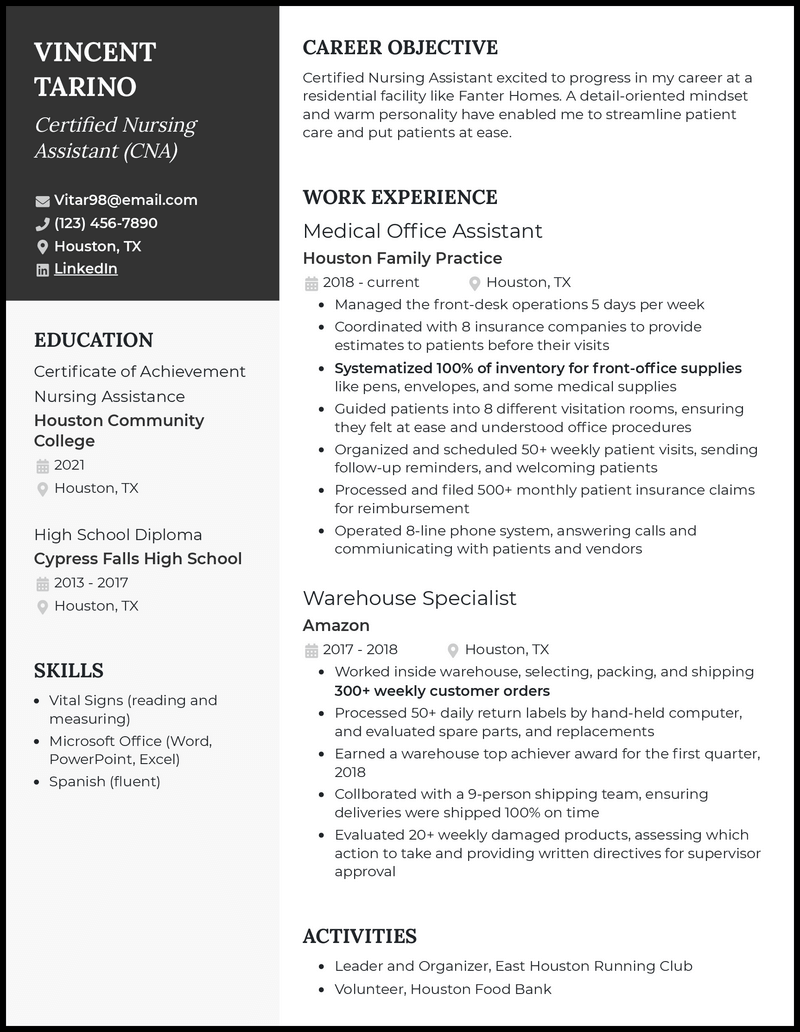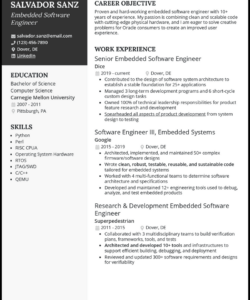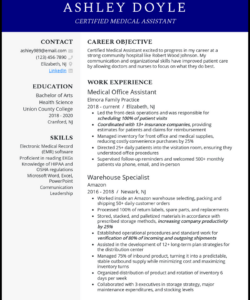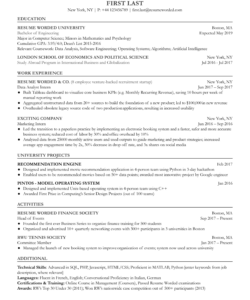Starting your journey as a Certified Nursing Assistant is an exciting step, but when it comes to creating your very first resume, it can feel a bit daunting. You might be wondering how to impress potential employers when you don’t have years of experience under your belt. The good news is, everyone starts somewhere, and a well-crafted resume can effectively highlight your potential and readiness for the role, even if it’s your very first job in healthcare.
Your resume is your first impression, a critical tool that opens doors to interviews. For an entry-level CNA, it’s not about listing a long work history, but rather about showcasing your training, certifications, relevant skills, and genuine passion for patient care. Understanding how to structure and what to include in an entry level cna resume template is key to making sure your application gets noticed in a competitive job market.
Crafting Your First CNA Resume: What to Include
When you’re building your entry-level CNA resume, think of it as telling your professional story, even if that story is just beginning. Recruiters want to see that you have the foundational knowledge and the right attitude. Start with the basics: your contact information should be clear and prominent at the top. This includes your full name, phone number, professional email address, and optionally, your LinkedIn profile if it’s well-maintained.

Next, consider adding a compelling resume objective or a brief summary. For an entry-level position, an objective can be particularly effective. It allows you to state your career goals and immediately convey your enthusiasm and what you aim to achieve in the role. Make it concise and focused on how you can contribute to the facility’s mission and patient well-being.
Highlighting Your Education and Certification
Your education and certification are arguably the most important sections for an entry-level CNA. This is where you prove you have the necessary qualifications. Clearly list the name of your CNA program, the institution, and the dates of attendance or completion. If you excelled, consider mentioning any honors or a high GPA. Immediately following this, dedicate a section to your CNA certification itself. Include the state where you are certified, your certification number, and the expiration date. This information assures employers you are legally qualified to practice.
Don’t forget to detail any clinical hours or practicum experience gained during your training. Even though it wasn’t paid employment, this hands-on experience is invaluable. Briefly describe the types of facilities you worked in (e.g., long-term care, hospital setting) and the specific duties you performed. Use action verbs to describe your responsibilities, such as “assisted,” “monitored,” “documented,” or “provided,” demonstrating your direct involvement in patient care.
Making Your Entry Level CNA Resume Stand Out
Even without extensive work experience, there are many ways to make your entry-level CNA resume truly shine. Beyond just listing your qualifications, think about the unique attributes and skills you bring to the table. Employers are looking for candidates who are not only competent but also reliable, compassionate, and excellent communicators. These soft skills are incredibly important in a patient-facing role like a CNA and should be woven throughout your resume.
One powerful technique is to quantify your achievements whenever possible. For instance, if you managed care for a certain number of patients during your clinical rotations, or if you consistently received positive feedback from instructors and supervisors, mention it. Specific examples, even from your training, help illustrate your capabilities more effectively than generic statements. Think about any challenging situations you navigated successfully or any instances where you went above and beyond for a patient.
Showcasing Relevant Skills
A dedicated “Skills” section is crucial. Divide this into hard skills (clinical procedures, medical terminology, vital sign measurement, EMR proficiency) and soft skills (empathy, active listening, teamwork, time management, problem-solving, adaptability). When listing hard skills, be specific. For example, instead of just “patient care,” specify “assisting with ADLs, catheter care, Hoyer lift operation.”
- **Attention to Detail:** Crucial for accurate charting and medication reminders.
- **Compassion and Empathy:** Essential for building trust with patients and their families.
- **Communication Skills:** Vital for interacting with patients, families, and the healthcare team.
- **Teamwork and Collaboration:** Demonstrates your ability to work effectively within a medical setting.
- **Time Management:** Shows you can prioritize tasks in a fast-paced environment.
Finally, always proofread your resume meticulously. A single typo or grammatical error can undermine your professionalism. Ask a trusted friend, mentor, or career advisor to review it for clarity and correctness. Also, remember to tailor your resume for each specific job application. While an entry level cna resume template provides a great starting point, customizing it by incorporating keywords from the job description will significantly increase your chances of getting an interview. This shows employers that you’ve put thought into your application and genuinely understand their needs.
Embarking on your career as a Certified Nursing Assistant is a rewarding path, and your first resume is a foundational step in that journey. By thoughtfully presenting your education, clinical experiences, and relevant skills, even without years of paid work history, you can create a powerful document that captures the attention of hiring managers. Focus on highlighting your passion for patient care, your commitment to learning, and your readiness to contribute positively to a healthcare team.
Remember, every successful CNA started right where you are now. With a well-structured and personalized resume, you’re not just applying for a job; you’re effectively showcasing your dedication and potential to provide compassionate and competent care. Take the time to craft a resume that truly reflects your best self, and you’ll be well on your way to securing your first role in this vital profession.


